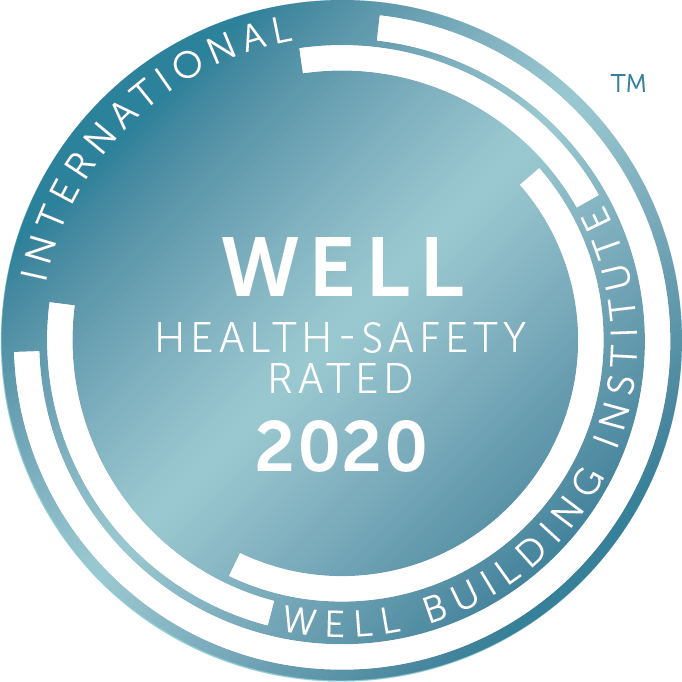IWBI launches WELL health-safety rating
Building health and safety group’s rating stems from efforts to address coronavirus pandemic.

The International WELL Building Institute (IWBI) has launched a WELL health-safety rating for all building and facility types, the group said Monday. The effort is part of IWBI’s work to promote environmentally safe and healthy workplaces and is in response to the coronavirus pandemic.
The health and wellness certification group applied insight from its Covid-19 task force of nearly 600 experts to formulate the rating, which focuses on a building’s operational policies, maintenance protocols, and design strategies to address “a post Covid-19 environment,” the group said. The task force was formed in late March to help guide IWBI’s response to the pandemic; members include public health experts, virologists, government officials, academics, business leaders, architects, designers, building scientists, and real estate professionals.
“The WELL Health-Safety Rating is a sign of confidence that measures have been enacted to help support the health and safety of people entering spaces of all kinds, and that those measures have been mapped to scientific evidence and verified through a third-party review process,” Rick Fedrizzi, chairman and CEO of IWBI, said in a statement Monday. “By drawing on the proven strategies in WELL, we’re working from the best science available and that’s more important than it’s ever been.”
IWBI also leveraged insight from the Centers for Disease Control and Prevention (CDC), the World Health Organization (WHO), the Department of Health and Human Services, the National Institutes of Health (NIH), and other academic and research institutions, as well as core principles established by its own WELL Building Standard, to develop the rating. IWBI’s WELL Building Standard recognizes buildings—including offices, manufacturing facilities, retail establishments, warehouses, and others—for efforts to improve health and human experience through building design.
The WELL Health-Safety Rating will accept registrations in June, the group said, adding that current WELL-registered projects and WELL Portfolio participants can earn the WELL Health-Safety Rating as part of their already established certification efforts.
For more coverage of the coronavirus crisis and how it's affecting the logistics industry, check out our Covid-19 landing page. And click here for our compilation of virus-focused websites and resource pages from around the supply chain sector.
Copyright ©2024. All Rights ReservedDesign, CMS, Hosting & Web Development :: ePublishing